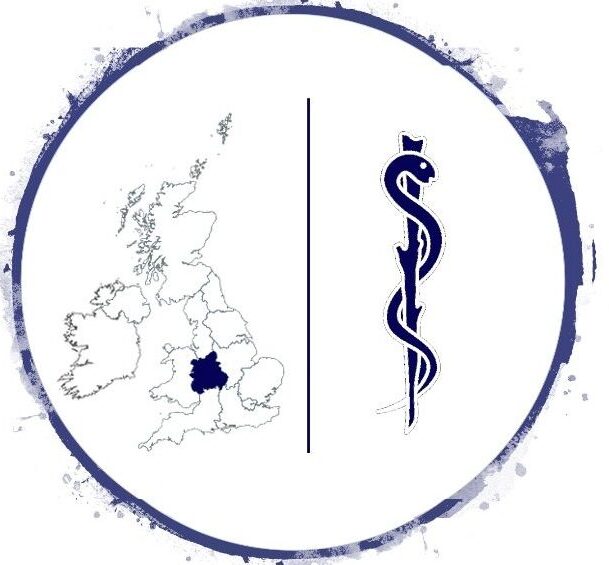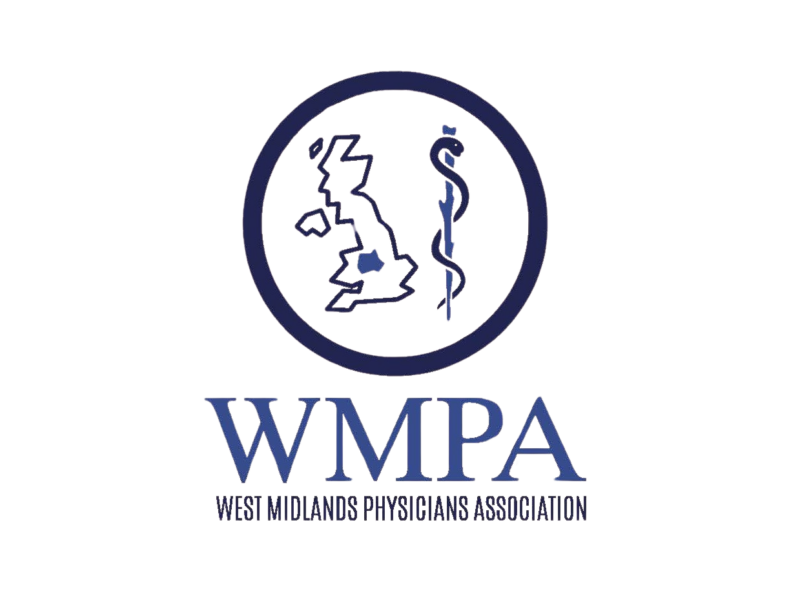About WMPA
The West Midlands Physicians Association, founded in 1950, held its 60th Anniversary meeting in 2010.
The WMPA holds twice yearly conferences in Spring and Autumn for senior, junior doctors and allied health professionals. Programmes include invited lectures, presentations of original research and discussion of case reports and series. Conferences incorporate Specialist Registrar Training and Consultant CPD.
The West Midland Physicians Association (WMPA) was formed in 1950 with the objects of advancing internal medicine and promoting friendship among physicians in the West Midlands. A small number of senior physicians had gained membership of the national Association of Physicians but this organisation was no longer able to meet the needs of the increasing number of physicians appointed following the introduction of the National Health Service. Furthermore, there was a need for those appointed to the United Birmingham Hospitals (UBH – Children’s, General, Queen Elizabeth), so-called Teaching Hospitals, to meet with physicians appointed to the Regional Hospitals (administered by Birmingham Regional Hospital Board – BRHB), so-called Non-Teaching Hospitals. This new association was initiated by Melville Arnott (William Withering Professor of Medicine, University of Birmingham) and James Sheldon, Consultant Physician, Royal Hospital, Wolverhampton & Chairman of the Consultant Advisory Committee, Birmingham Hospital Board. They invited Dr. George Whitfield to create the association as its first Secretary.
The structure followed that of the Association of Physicians with membership based upon nomination and subsequent voting by existing members, the total number being limited. Foundation members were physicians appointed to UBH and the Senior Physician at each of the Regional Hospitals. This created an initial membership of around 50 doctors with an intake of 4-5 each year to a maximum of 100 persons.
Meetings were to be held on a Saturday and to alternate between the hospitals of Birmingham in the autumn of each year with a visit to a geographically peripheral hospital each spring. A small executive committee would be formed with geographical representation. This body would be responsible for the election each year of a President.
The inaugural meeting was held in the Anatomy Lecture Theatre of the Birmingham Medical School in November 1950. Each member was invited to bring a guest and papers were to be presented by members of the junior hospital staff, mainly Senior Registrars, on research topics. The host also invited members of his junior staff to sit at the rear but not to ask questions. The business meeting was closely private. In order to achieve the object of fellowship, the Secretary, George Whitfield, wrote up the names of each speaker either presenter or questioner from the floor, on a blackboard in large capital letters. How he knew or remembered the names was a mystery but he rarely made an error! Lunch was provided by the host hospital Board and a dinner was held at the conclusion of the Business Meeting in the evening. An annual membership fee of £5 was agreed.
The meetings were outstandingly popular both for their educational value and fellowship content. Competition by Senior Registrars was intense and the standard of presentation high due to the critical eye of Melville Arnott. The Spring meetings developed a strong social aspect with the local hospital boards wanting to show their talents. It was usual for the Chairman or his Deputy to attend the lunch with opportunity for the President to make a speech of thanks for the hospitality provided. A convivial dinner ended the day with plenty of good cheer. Members then drove home along quiet roads.
At the fourth meeting of WMPA at Wolverhampton, Dr. J. H. Sheldon read a paper entitled “Wolverhampton, its local, industrial and medical history”. This established a tradition whereby a physician of the host hospital read a paper usually of local historical interest, at the end of the morning scientific session.
The organization developed by increasing the number of annual admissions to a point where all West Midland physicians became eligible for membership on appointment. After 10 years George Whitfield retired as Secretary. He was followed by a succession of eminent regional physicians as either Secretary or Treasurer in about 5 yearly rotations. The arrangements for the meetings continued largely unchanged apart from locations, a notable one being held at Rugby School in the snow. Another memorable event was a successful cardiac resuscitation of a member attending Dudley Road Hospital and the fatal collapse of Dr. R. E. Smith following the presentation “Joseph Chamberlain, Community Benefactor and first Chancellor of Birmingham University”.
The death of Dr Stephen Whittaker in 1980, a founder member and successor to James Sheldon as chairman of the Regional Consultants Committee, was followed by a memorial appeal for money to promote a prize for the best scientific paper by a member of the junior hospital staff. Clinical case reports became feature of the programme from 1982, so when Owen Wade retired as Dean of Birmingham Medical School and Professor of Therapeutics in 1986 he gave a donation to WMPA to fund a prize for the best Case Presentation. The death of George Whitfield in 1984 was commemorated by the foundation of an annual memorial lecture.
In the 1980s, attendances were falling, this being ascribed by some members as due to Saturday no longer being regarded as a working day. After a number of prolonged Business meetings it was finally decided in 1990 to move the autumn meetings to Friday afternoons followed by the Annual Dinner. This provided problems of traffic and car parking so alternation between Tuesday, Wednesday and Thursday was instituted from 1998 onwards. This was found to be preferable but still the attendance declined. After much discussion it was decided to lengthen the meetings by a start at 10.0 am, the morning session being purely educational and approved as Continuous Professional Training (Education) for both career and training grade physicians. This brought in a major increase in trainee staff, many of remaining for the scientific part of the meeting. More recently the re-introduction of Guest Lectures on topics loosely linked to medicine has proved to be popular. At the gatherings during the last decade, attendance has been around 150 physicians.



